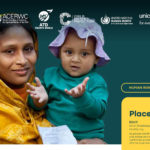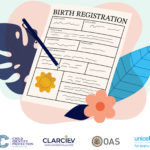
September 2025, Africa and Asia: Dissemination of various guides to improve civil registration and vital statistics systems
Various organisations have come together to develop the Practitioners’ Guide on Digital Civil Registration and Vital Statistics Systems aimed at relevant stakeholders in Africa, based on initial work in November 2024, under the guidance of the Africa regional core group on CRVS, the Africa Programme on Accelerated Improvement of CRVS (APAI-CRVS) and the UN Economic Commission for Africa (UNECA). The guide details the principles, functional requirements, licensing, service and hosting options, and procurement considerations for a digitalised system, which seeks not just to convert the analogue information into digital databases, but to re-engineer the entire system to simplify operations, provide online services and generally enhance user experiences. To that effect, the guide also aligns itself closely with the UN Legal Identity Agenda (UNLIA) and Sustainable Development Goal 16.9.
In parallel, a guide on the Role of Unique Identifiers in Civil Registration & Vital Statistics and National Identification Systems was published through cooperation between UNICEF, UN Economic and Social Commission for Asia and the Pacific (UNESCAP), the UNLIA Task Force, and Members of the Asia Pacific CRVS Partnership aimed at relevant stakeholders, particularly in the Asia and Pacific region. It delves into both the benefits and risks associated with unique identifiers and serves as an introduction to the way they improve CRVS systems by facilitating consolidating the information from multiple systems and registries, making CRVS systems more efficient and cost-effective, and enhancing the accuracy and reliability of information.
CHIP welcomes these two important publications as they complement the many important and useful resources which can support stakeholders when improving CRVS systems. Through, inter alia, digitalisation and the introduction of unique identifiers, CRVS processes will become simpler, improving efficiency and accessibility, and become more economical and transparent, with a positive outcome for society, as CRVS, including universal birth registration, facilitates people’s access to their basic rights.
See: Digital civil registration and vital statistics systems: principles; functional requirements; licensing, service and hosting options; and procurement considerations. Practitioners’ guide,
November 2024, at <https://apai-crvs.uneca.org/sites/default/files/resourcefiles/EN-%20Practitioners%20guide%20for%20digital%20CRVS%20system.pdf>
Further resources can be found at <https://apai-crvs.uneca.org/manuals-and-guidelines>
And Role of Unique Identifiers in Civil Registration & Vital Statistics and National Identification Systems, August 2025, at <https://getinthepicture.org/sites/default/files/resources/Unique%20Identifiers%20in%20Civil%20Registration%20final%20030925.pdf>





